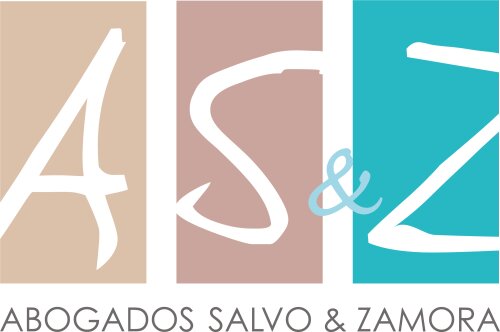Best Antitrust Litigation Lawyers in Valparaíso
Share your needs with us, get contacted by law firms.
Free. Takes 2 min.
List of the best lawyers in Valparaíso, Chile
About Antitrust Litigation Law in Valparaíso, Chile
Antitrust litigation in Valparaíso, Chile, covers disputes and enforcement actions related to competition law - commonly called the Law on the Defence of Free Competition. These matters include allegations of cartels, price-fixing, market allocation, abuse of dominant position, and unlawful conduct in merger or acquisition processes. Enforcement combines administrative investigations by the national competition authority with judicial litigation before specialized competition courts and ordinary civil courts. Residents and businesses in Valparaíso should expect that most substantive law and enforcement practice is national in scope, but cases may arise from local markets, ports, transport routes, and regional supply chains that are central to Valparaíso economy.
Why You May Need a Lawyer
Antitrust matters are complex, fact-intensive, and can have severe financial and reputational consequences. You should consider hiring an experienced antitrust lawyer if you face any of the following situations:
- You are accused of participating in a cartel or other anticompetitive agreement.
- You suspect competitors are colluding to fix prices or divide markets in Valparaíso.
- You are involved in or planning a merger or acquisition that may raise competition concerns.
- You believe a dominant company is engaging in exclusionary or abusive conduct that harms your business.
- You want to pursue a private damages claim for losses caused by anticompetitive conduct.
- You have been contacted by the Fiscalía Nacional Económica - the national competition authority - or by the Tribunal de Defensa de la Libre Competencia as part of an investigation or litigation.
- You seek to use a leniency or immunity program to report cartel participation and mitigate penalties.
In these situations a lawyer can advise on legal strategy, evidence preservation, interactions with authorities, negotiation of settlements, and representation in court or before administrative bodies.
Local Laws Overview
Key elements of the Chilean antitrust framework that are particularly relevant in Valparaíso include the following:
- Governing statute - Chile enforces competition rules under the Law on the Defence of Free Competition. This law prohibits collusive agreements, abusive conduct by dominant firms, and sets out procedures for enforcement and remedies.
- Enforcement agencies - The Fiscalía Nacional Económica (FNE) is the principal investigative and prosecutorial agency for competition matters. The Tribunal de Defensa de la Libre Competencia (TDLC) is the specialized court that decides antitrust litigation and can impose remedies and monetary sanctions.
- Private enforcement - Businesses and individuals may bring private claims in civil courts for damages caused by anticompetitive conduct. These claims can run in parallel with administrative or TDLC proceedings.
- Leniency and cooperation - Chile operates a leniency program that can grant immunity or reduced penalties to the first party that provides sufficient evidence of a cartel. Using the program correctly requires careful legal guidance.
- Remedies and sanctions - Remedies include fines, conduct remedies, structural remedies, and damages awards. The TDLC and courts can order corrective measures tailored to restore competition. Administrative fines and private damages can lead to substantial exposure.
- Merger control - Certain mergers and acquisitions may require notification or scrutiny where the transaction significantly affects competition. Thresholds and procedures are set by competition authorities and can involve pre-notification consultations.
- Evidence and confidentiality - Antitrust litigation often relies on documentary and electronic evidence - including emails, pricing records, and internal documents. Parties must act to preserve evidence, and confidentiality protections may be available in judicial or administrative proceedings.
- Procedural aspects - Timelines, evidentiary burdens, appeal routes, and interlocutory measures differ depending on whether the matter proceeds before the FNE, TDLC, or ordinary civil courts. Appeals may reach higher courts, including the Supreme Court, on points of law.
Frequently Asked Questions
What kinds of conduct are considered anticompetitive in Chile?
Conduct that is typically anticompetitive includes agreements among competitors to fix prices, rig bids, allocate markets or customers, and coordinate production - all commonly called cartels. Abuse of a dominant position that excludes competitors or unfairly ties products is also prohibited. Anticompetitive mergers that substantially lessen competition may be subject to enforcement action.
If I suspect a cartel in Valparaíso, what should I do first?
Document your observations while avoiding any improper contact with suspected parties. Preserve relevant documents and electronic records, note dates and participants, and consult an antitrust lawyer promptly. A lawyer can evaluate whether to approach the FNE, seek interim measures from a court, or pursue a private claim.
Can individuals or small businesses bring antitrust claims in Chile?
Yes. Private parties can sue for damages caused by anticompetitive behavior in civil courts. Small businesses and consumers may pursue compensation or remedies, though collecting evidence and proving damages can be challenging. An attorney can help assemble proof and calculate losses.
What penalties might a company face if found liable for cartel conduct?
Sanctions can include significant administrative fines, court-ordered remedies, and civil liability for damages to harmed parties. For companies and responsible individuals, consequences can be severe - including monetary penalties and reputational harm. Using a leniency program may reduce or eliminate fines for cooperating parties under certain conditions.
What is the role of the Fiscalía Nacional Económica and the TDLC?
The FNE conducts investigations, brings cases, and can request that the TDLC initiate litigation when competition breaches are suspected. The TDLC is the specialized tribunal that decides on infringement, imposes remedies, and sets administrative sanctions. Decisions can be appealed to higher courts on limited legal grounds.
How does the leniency program work and should I apply?
The leniency program allows a cooperating party to receive immunity or reduced sanctions by providing evidence of cartel conduct, typically if they are the first to come forward with sufficient information. Deciding to apply is complex - it requires timely action, confidentiality safeguards, and legal strategy to protect company interests. Consult counsel immediately if you are considering leniency.
Can foreign or cross-border conduct be subject to Chilean antitrust law?
Yes. Conduct that affects competition in Chile - including in Valparaíso markets - can fall within Chilean jurisdiction even if some conduct occurred abroad. Cross-border cartels, pricing strategies, or international mergers that impact local markets may trigger investigations and enforcement in Chile.
How long do antitrust cases typically take?
Timelines vary widely. Administrative investigations by the FNE can take months to years depending on complexity. TDLC litigation and appeals add additional months or years. Private damages cases in civil courts also vary. Early legal advice can help manage expectations and pursue interim measures when necessary.
What evidence is most useful in antitrust cases?
Documents showing coordination - such as emails, meeting notes, pricing spreadsheets, bid documents, memoranda, and witness accounts - are key. Economic analysis showing the effect on prices, output, or market structure is also important. Prompt preservation of documents and metadata is critical to avoid spoliation claims.
How much does it cost to hire an antitrust lawyer in Valparaíso?
Costs depend on the firm, the complexity of the matter, and the work required - including investigations, litigation, and expert economic analysis. Fee arrangements can be hourly, fixed-fee for defined tasks, or mixed. Discuss fees and billing arrangements up front, and consider the potential financial exposure from fines and damages when making decisions.
Additional Resources
For reliable information and assistance, consider the following resources and institutions - many operate at the national level but serve Valparaíso residents and businesses:
- Fiscalía Nacional Económica (FNE) - national competition authority that investigates antitrust matters.
- Tribunal de Defensa de la Libre Competencia (TDLC) - specialized competition court that rules on antitrust disputes and remedies.
- National courts - civil courts can hear private damages claims related to anticompetitive conduct.
- Local bar associations - for referrals to experienced antitrust lawyers in Valparaíso, consult the regional bar association or the national Colegio de Abogados.
- University law and economics departments - local universities may publish research, case studies, and analyses on competition issues relevant to the Valparaíso region.
- Trade associations and chambers of commerce - for sector-specific guidance on market practices and compliance expectations in sectors such as shipping, logistics, and retail that are important to Valparaíso economy.
Next Steps
If you need legal assistance for an antitrust matter in Valparaíso - follow these practical steps:
- Gather and preserve evidence - collect documents, emails, contracts, invoices, and any records that support your position. Avoid deleting or altering files.
- Seek an initial legal consultation - choose a lawyer or firm with experience in Chilean competition law and litigation. Ask about prior cases, outcomes, and fee arrangements.
- Assess enforcement options - your lawyer will help determine whether to notify the FNE, file a complaint with the TDLC, pursue a private damages claim, or seek other remedies.
- Consider leniency or cooperation carefully - if you or your company may have participated in prohibited conduct, immediate legal advice is essential to evaluate leniency applications and risk management.
- Plan for timelines and costs - antitrust disputes can be lengthy and resource-intensive. Work with counsel to set realistic expectations and a litigation or settlement strategy.
- Protect your business going forward - implement or update competition compliance policies, train staff on antitrust risks, and document compliance efforts to reduce future exposure.
Note - This guide is for informational purposes only and does not constitute legal advice. For advice tailored to your situation contact a qualified antitrust lawyer in Valparaíso.
Lawzana helps you find the best lawyers and law firms in Valparaíso through a curated and pre-screened list of qualified legal professionals. Our platform offers rankings and detailed profiles of attorneys and law firms, allowing you to compare based on practice areas, including Antitrust Litigation, experience, and client feedback.
Each profile includes a description of the firm's areas of practice, client reviews, team members and partners, year of establishment, spoken languages, office locations, contact information, social media presence, and any published articles or resources. Most firms on our platform speak English and are experienced in both local and international legal matters.
Get a quote from top-rated law firms in Valparaíso, Chile — quickly, securely, and without unnecessary hassle.
Disclaimer:
The information provided on this page is for general informational purposes only and does not constitute legal advice. While we strive to ensure the accuracy and relevance of the content, legal information may change over time, and interpretations of the law can vary. You should always consult with a qualified legal professional for advice specific to your situation.
We disclaim all liability for actions taken or not taken based on the content of this page. If you believe any information is incorrect or outdated, please contact us, and we will review and update it where appropriate.









